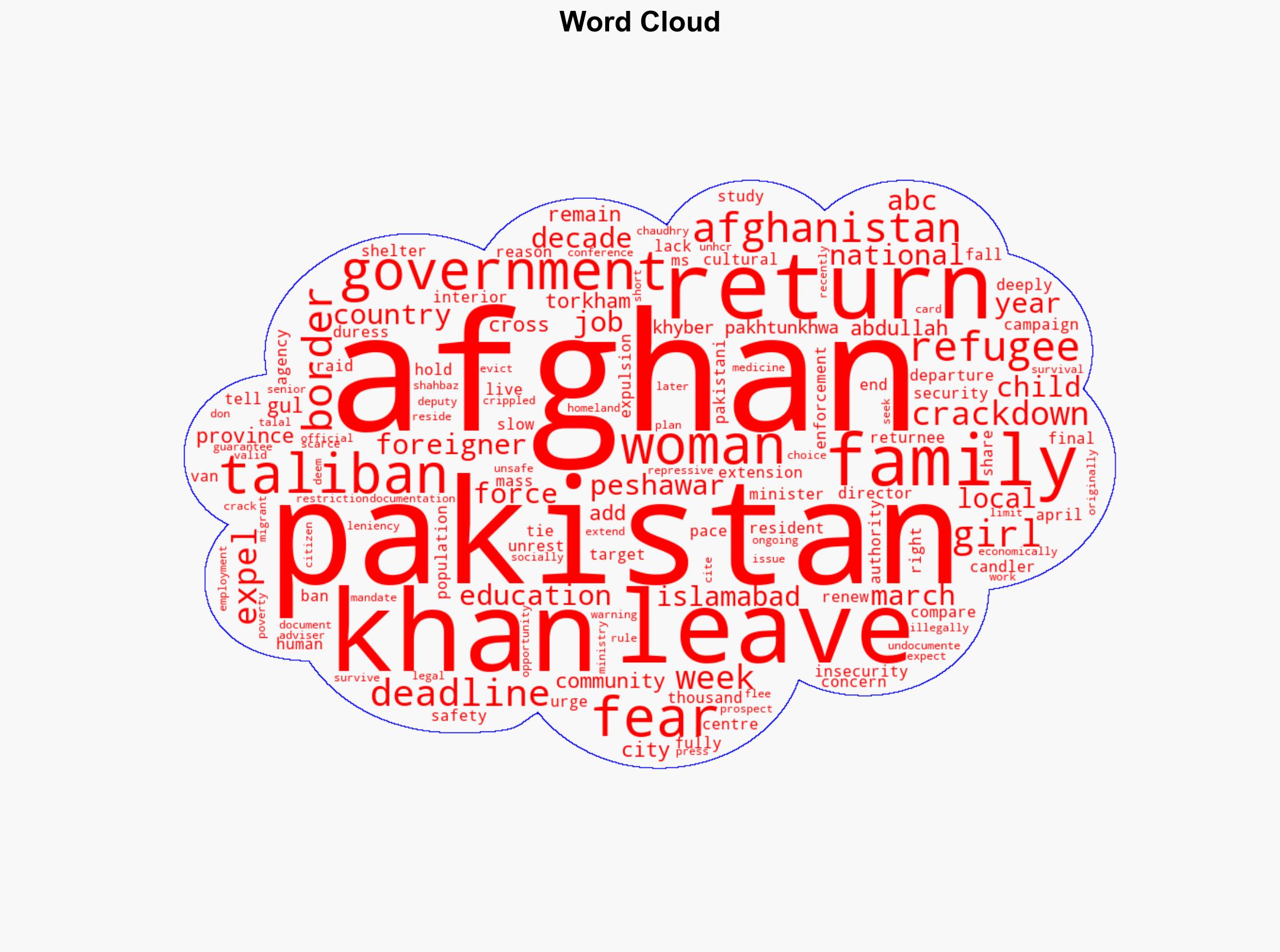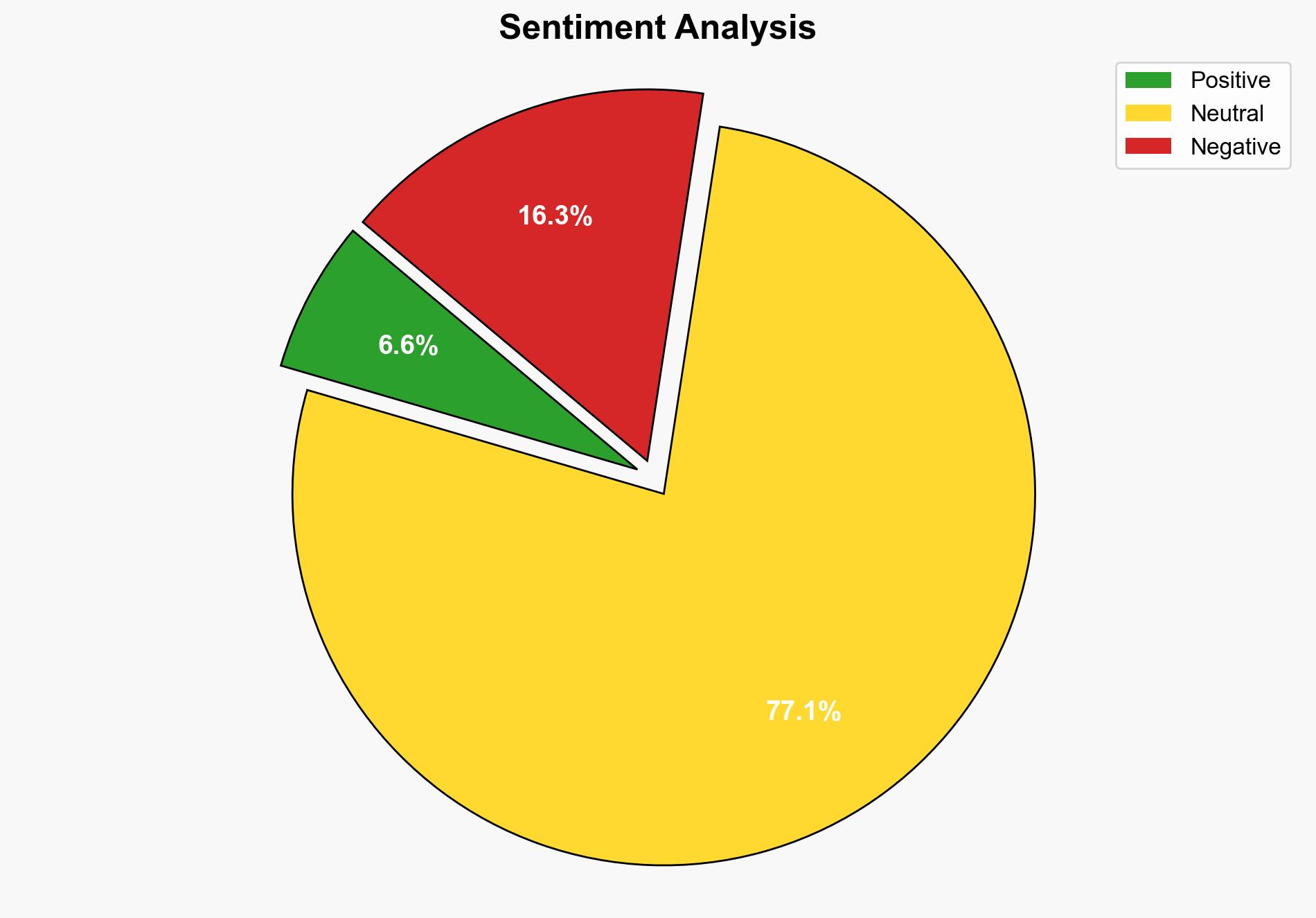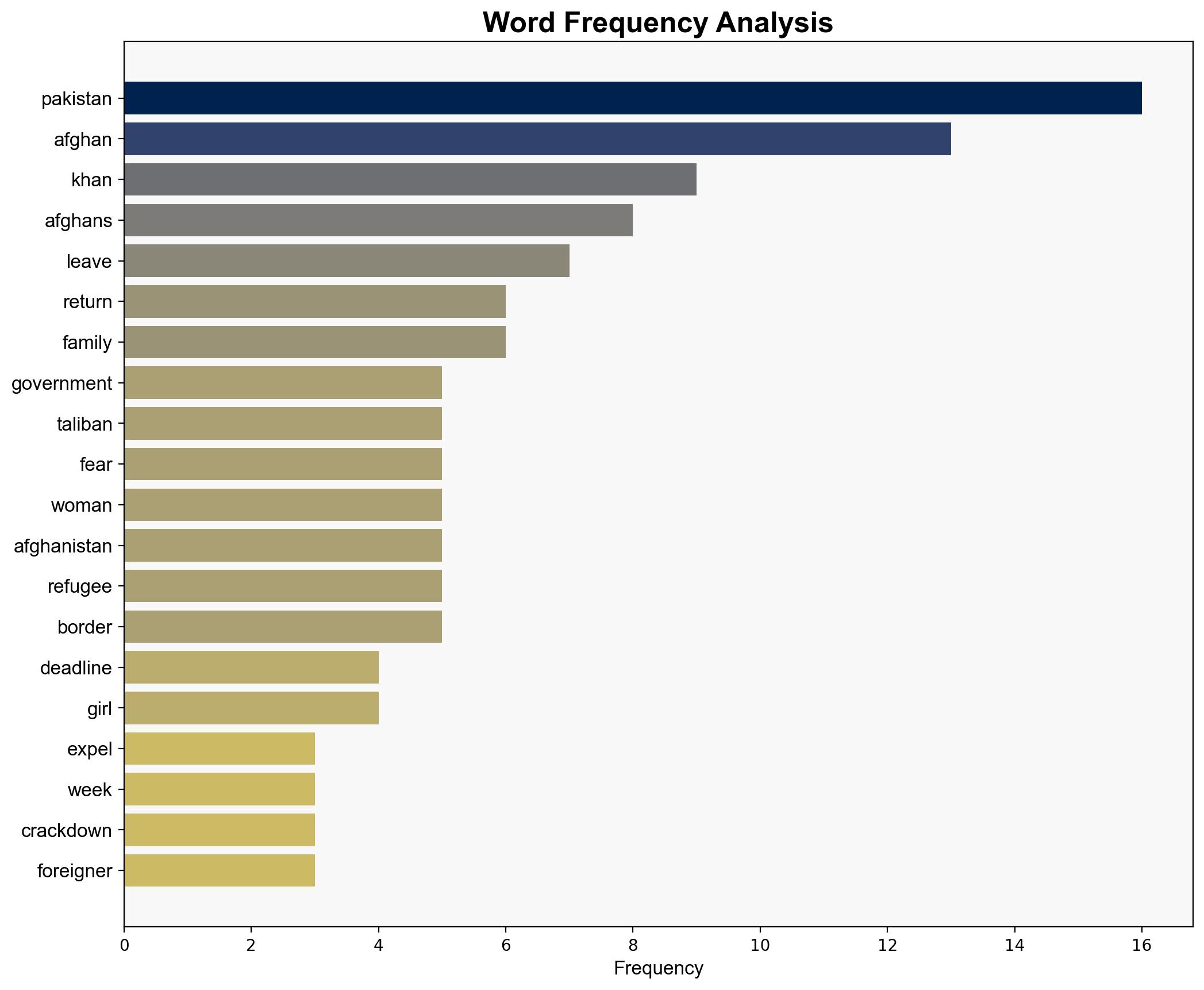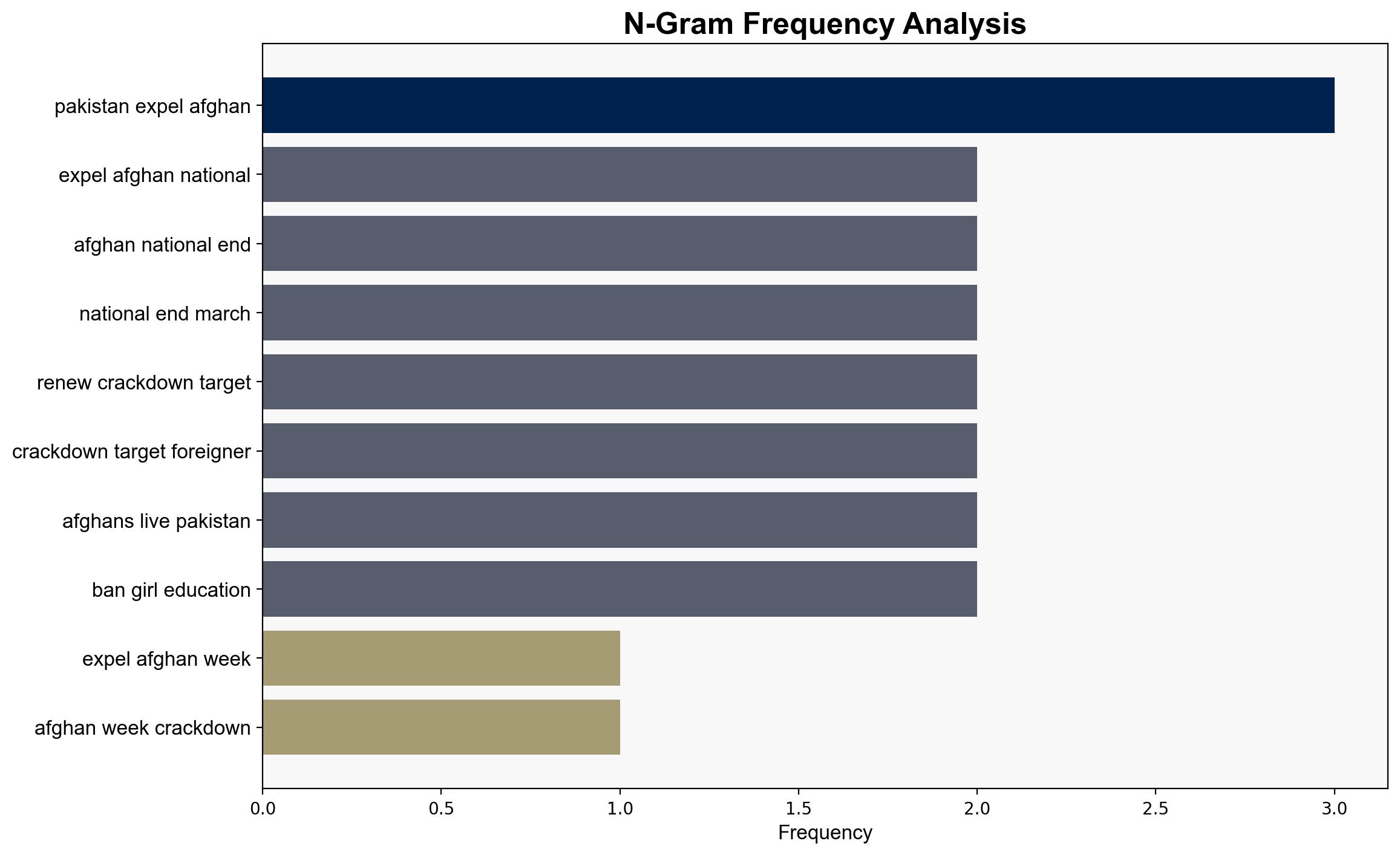Pakistan drives out 80000 Afghans in repatriation campaign – ABC News (AU)
Published on: 2025-04-19
Intelligence Report: Pakistan drives out 80000 Afghans in repatriation campaign – ABC News (AU)
1. BLUF (Bottom Line Up Front)
Pakistan’s recent campaign to expel 80,000 Afghan nationals highlights significant regional instability and humanitarian concerns. The forced repatriation, driven by Pakistan’s crackdown on undocumented migrants, exacerbates the precarious situation for Afghans under Taliban rule. Strategic recommendations include diplomatic engagement to address humanitarian needs and regional stability.
2. Detailed Analysis
The following structured analytic techniques have been applied:
SWOT Analysis
Strengths: Pakistan’s enforcement of immigration laws aims to regulate undocumented migration, potentially stabilizing internal demographics.
Weaknesses: The campaign risks straining Pakistan’s relations with Afghanistan and international bodies, potentially leading to humanitarian crises.
Opportunities: Diplomatic engagement could foster regional cooperation and humanitarian aid initiatives.
Threats: Increased instability in Afghanistan due to the return of refugees could lead to further regional insecurity and migration pressures.
Cross-Impact Matrix
The expulsion of Afghan nationals from Pakistan may lead to increased pressure on Afghanistan’s already fragile infrastructure, potentially causing spillover effects such as increased migration to neighboring countries and heightened regional tensions.
Scenario Generation
Scenario 1: Pakistan continues with the repatriation, leading to heightened tensions with Afghanistan and international criticism. This could result in increased humanitarian aid demands.
Scenario 2: Diplomatic negotiations lead to a temporary halt in repatriations, allowing for a more structured and humane approach to refugee management.
Scenario 3: Continued enforcement without international cooperation exacerbates regional instability, potentially leading to increased cross-border conflicts.
3. Implications and Strategic Risks
The forced repatriation campaign poses significant risks, including humanitarian crises, increased regional instability, and potential international backlash. The socio-economic integration of Afghan refugees in Pakistan is disrupted, potentially leading to unrest and further migration.
4. Recommendations and Outlook
- Engage in diplomatic dialogue with Afghan and international stakeholders to address humanitarian concerns and seek cooperative solutions.
- Implement a phased approach to repatriation, ensuring adequate support and resources for returnees.
- Monitor regional developments closely to anticipate potential security threats and migration trends.
- Scenario-based projections suggest that increased international cooperation could mitigate humanitarian impacts and stabilize the region.
5. Key Individuals and Entities
Shahbaz Khan, Talal Chaudhry, Philippa Candler, Abdullah Khan, Akber Khan.




